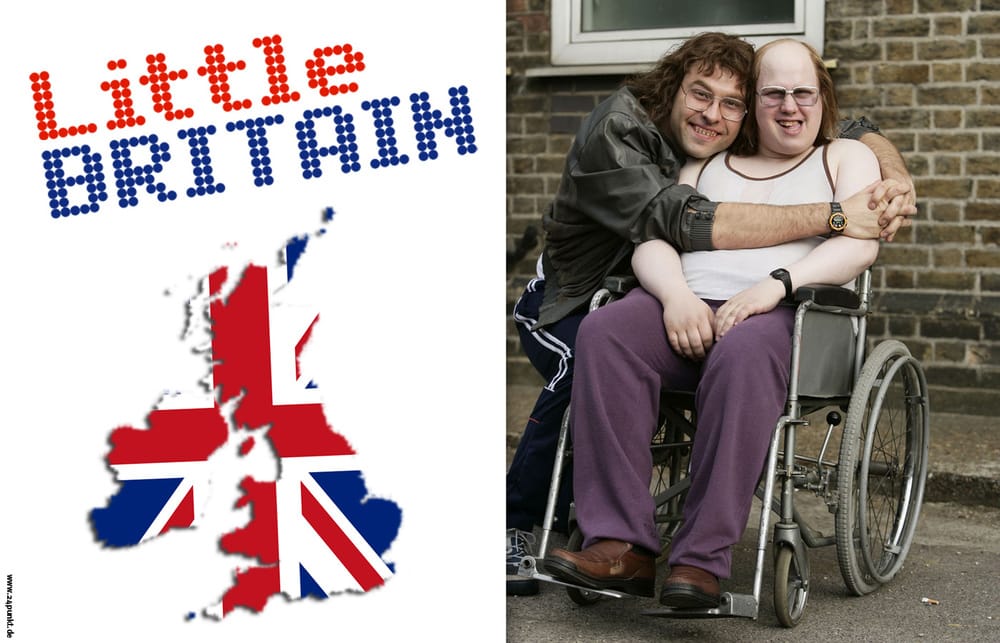Hating headlines that tell you how to feel

Old people have always had it in for BBC3. Unlike the sleepy old BBC4, home of gentle documentaries presented by the lovely Lucy Worsley, BBC3 is an overactive puppy, full of rebellion and naïve excitement that spends most of its spare time engaged in an act of passion with the living room furniture
Old people have always had it in for BBC3. Unlike the sleepy old BBC4, home of gentle documentaries presented by the lovely Lucy Worsley, BBC3 is an overactive puppy, full of rebellion and naïve excitement that spends most of its spare time engaged in an act of passion with the living room furniture. The elderly mention it with disgust as a classic example of the shocking behaviours of the ‘youth of today’. To many observers, then, it has come as no surprise that BBC big-wigs, most of them old and bald enough to benefit from a big wig, have decided that this little puppy should be put down.
In its 10 years on our screens, BBC3 has brought us some groundbreaking comedy, with praise and awards heaped upon some of the best known shows of the past decade. But for every Gavin and Stacey or Little Britain, there’s been a bewildering variety of appalling reality TV and bizarre documentaries whose mere names I couldn’t possibly mention in case someone with taste might be reading this.
Despite its hit-and-miss (mainly miss) ‘factual’ output, the channel has been praised as an ideal training ground for new comics, providing opportunities to take risks that other higher profile outlets would be less willing to accept. Yet last week, 8 of its 10 most watched shows were either films or old Family Guy episodes – hardly the radical new programming paraded as the channel’s raison d’être.
Alright, I’ll admit it. As you may have noticed from my use of the phrase “raison d’être”, I’m not a regular viewer of BBC3. Despite still, just, being a teenager, I have a mental age of about 50, and so have failed to find much on the channel particularly appealing. But, despite my personal feelings, as a publicly funded broadcaster, the BBC is still obliged to provide something for everyone, whatever their age, background and preferences, which is why this decision has been attacked by many in the popular press.
Critics have portrayed the channel’s demise as a bunch of old middle-class men forcing young people to take the brunt of the financial hardship. But is this decision really down to a war between the generations? Or is it simply the most efficient way of cutting expenditures? The man wielding the axe, Director-General Tony Hall, now a venerable 63, insists its move to an afterlife on the iPlayer is preferable to the ‘salami-slicing’ of key services that has become a familiar symptom of budget cuts in many major organisations.
I agree with this. I don’t see this decision as a “war on the young” (as a recent Huffington Post piece described it), but as a war on bad programming. BBC3 is a channel aimed not at young people, but at a patronising caricature of a young person sat on a desk in a big office at the top of broadcasting house. I’d like to inform the BBC that most of us are, for instance, perfectly capable of taking in news without it first having to be condensed into 60-second ‘bitesize’ chunks, with news about the economy being balanced out with a healthy dose of Justin Bieber.
The move online, along with a budget cut, will hopefully focus the channel’s content onto a smaller number of higher quality programmes. This can only be a good thing. The iPlayer, one of the biggest brands in digital media, will be a fitting home for the channel and the digital generation it’s aimed at. This, I hope, will provide an engaging, high-quality, maybe even intelligent service targeted at young people, alongside the multitude of popular programmes on the BBC’s other channels.
So, for once, I’m happy with this particular round of cuts.
Just so long as they don’t get rid of BBC4.





